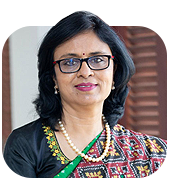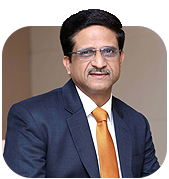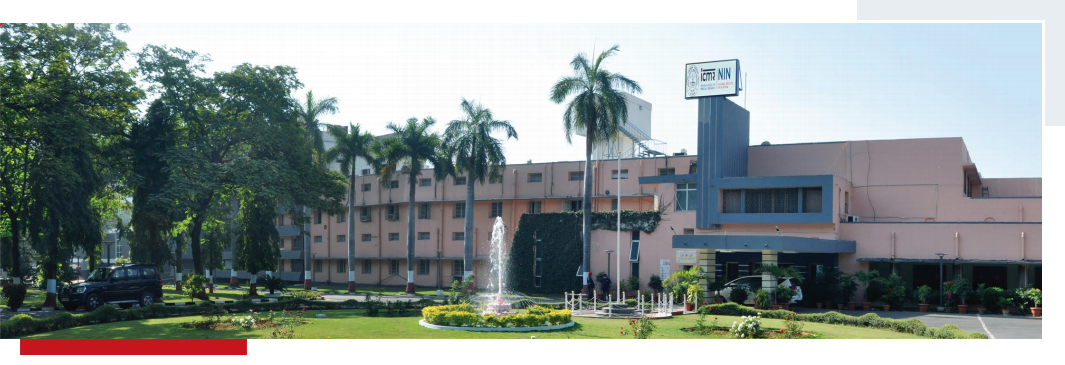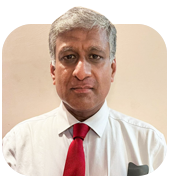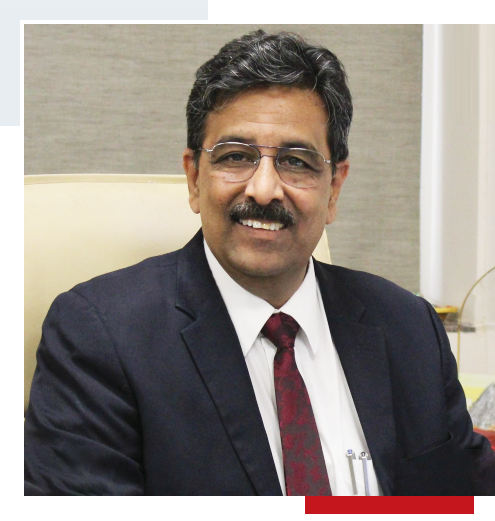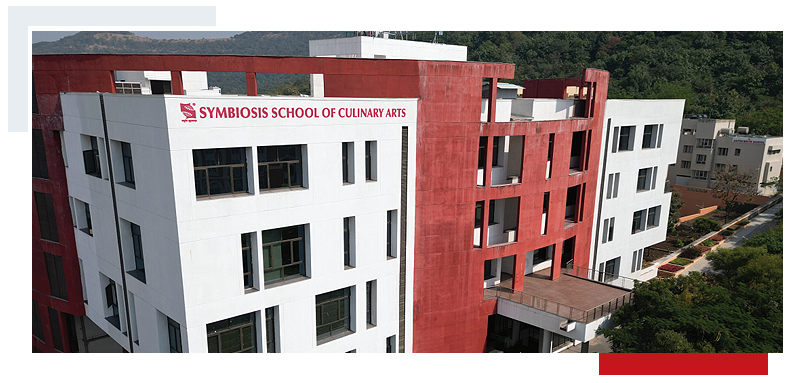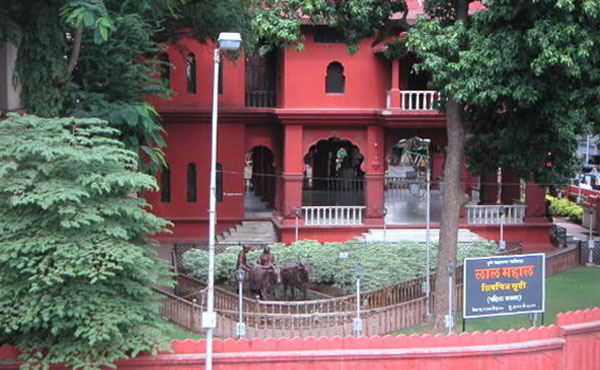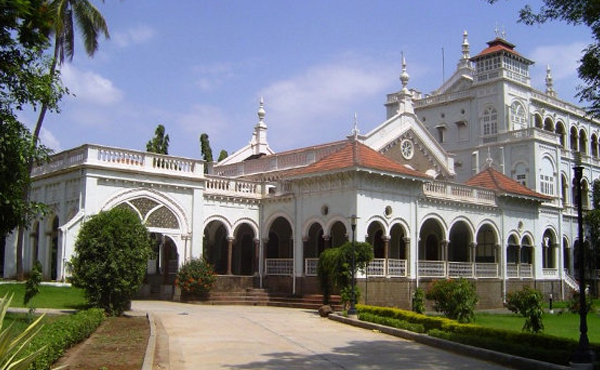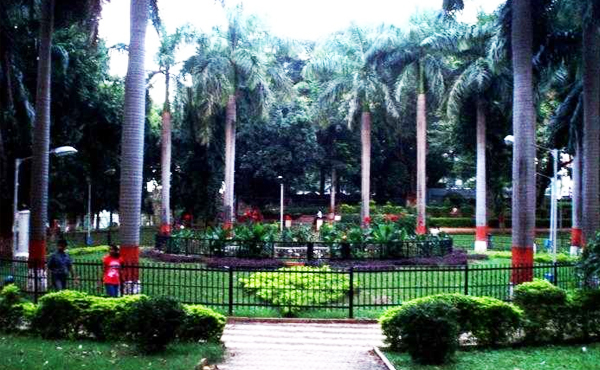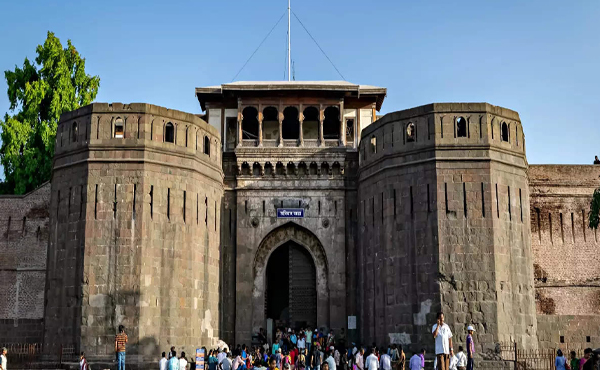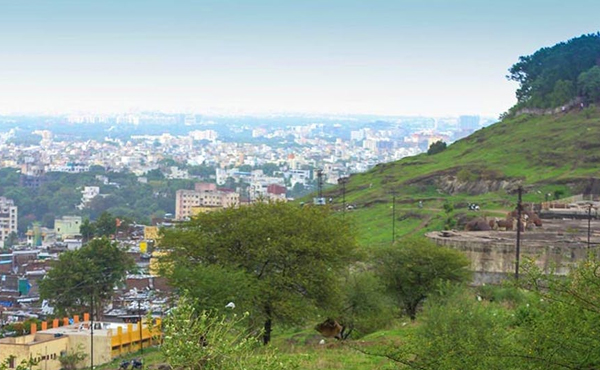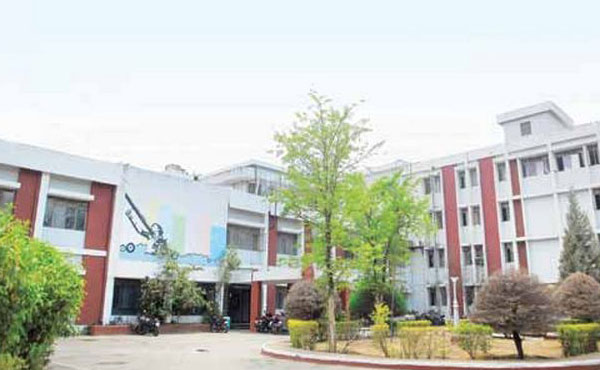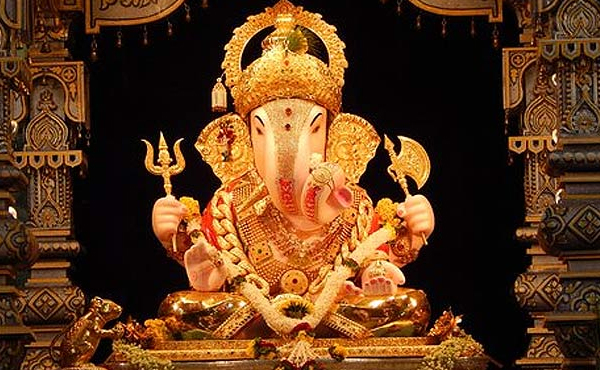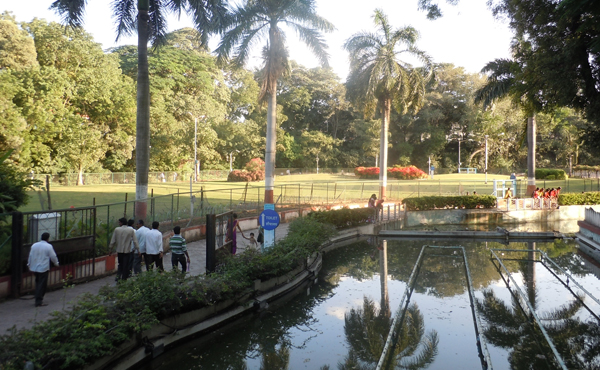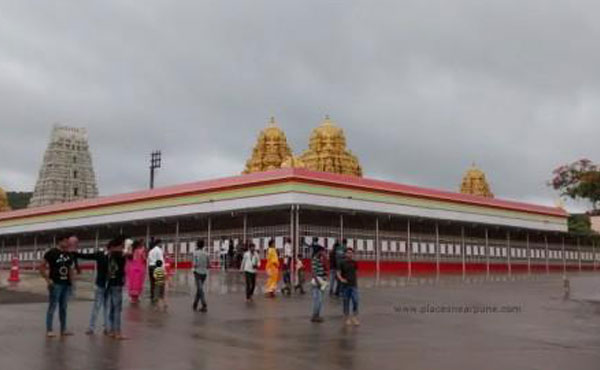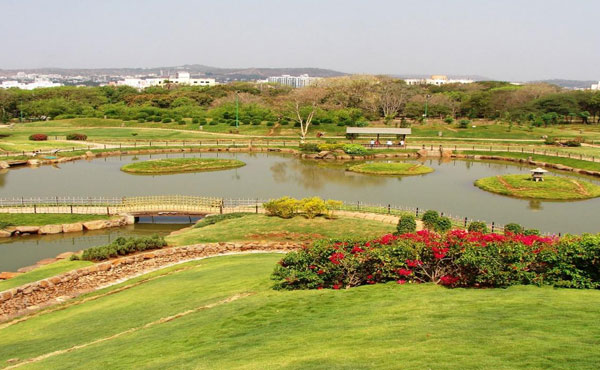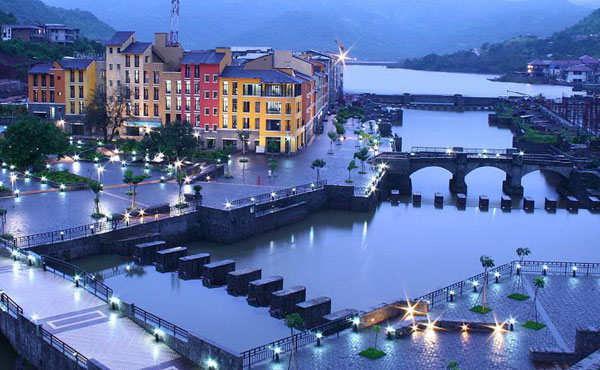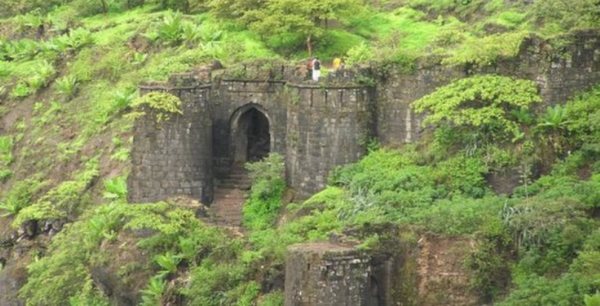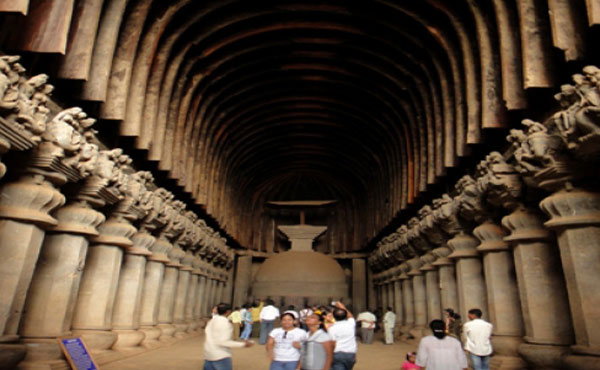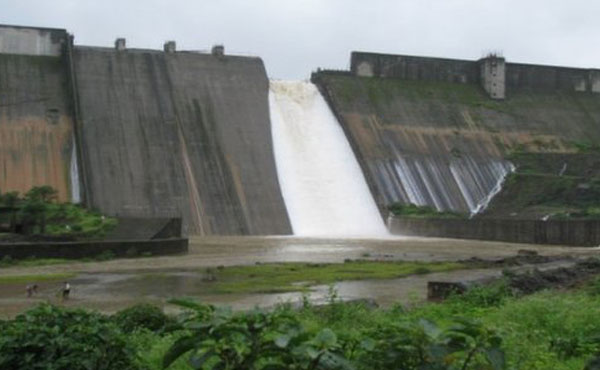SYMBIOSIS A SAGA OF EXCELLENCE
Symbiosis Motto: "Vasudhaiva Kutumbakkam" means "World
is one Family"
Symbiosis is a family of 46 academic institutions,
imparting quality education for over 40 years. It is
host to over 27,000 Indian and International students on
campus.
These campuses epitomize the Symbiosis vision,
'Promoting International Understanding through Quality
Education'
and are a beehive of international students from all
across the globe, being privy to Indian culture and
hospitality. Many of these campuses are fully residential
and have recreational facilities which include swimming
pools, amphitheaters & Health Care centres. Keeping its
excellent track record in mind, in 2002, the Ministry of
Human Resources Development, Government of India conferred
the 'Deemed to be University' status on Symbiosis.
Founder & President Symbiosis
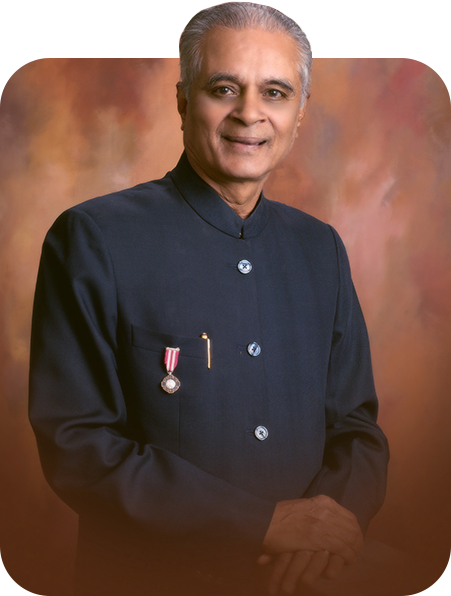 Prof. Dr. S. B. Mujumdar
Prof. Dr. S. B. Mujumdar
Founder and President, Symbiosis Chancellor, SIU
Inspired by the ideals of 'Vishwa Bharati' of Gurudev
Rabindranath Tagore and 'Antar Bharati' of Sane Guruji
and with a deep desire to help foreign students, an idea
of 'Symbiosis' was conceived by Dr. S.B. Mujumdar in the
year 1971. The motto of Symbiosis is 'Vasudhaiva
Kutumbakam' and truly for the foreign students at Pune
it is a 'Home away from Home'.
Symbiosis today comprises of 46 institutes imparting
training in diverse disciplines. It has students who
hail from all states of India and from more than 85
different countries. Symbiosis is known to be a
multi-cultural, multi-lingual and multi-national
institution. An institution, where academic democracy
prevails, where law is the religion and freedom of
thought and expression is the spirit, where equality is
not preached but practiced, where Innovation, Passion
and Compassion is nurtured.
Dr. VIDYA YERAVDEKAR
Pro-Chancellor, SIU
Principal Director,
Symbiosis
Dr. RAMAKRISHNAN RAMAN
Vice Chancellor, SIU
Dr. RAJIV YERAVDEKAR
ProVost, Faculty of Medical & Health Sciences,
SIU
NUTRITION SOCIETY OF INDIA
The Nutrition Society of India (NSI) is a 53-year-old
not-for-profit professional body dedicated to promoting
nutrition science and public health. Established in 1967,
NSI is an association of nutrition professionals,
researchers, public health practitioners, academi cs,
programme implementers, policymakers and students from India
and abroad with more than 5741 members. Dr. C. Gopalan, the
father figure of Nutrition Research in India, was the
Founder President of NSI.
The society is dedicated to disseminating the results of
the latest research in nutrition – basic and applied
aspects, analysing the current status of nutrition
programmes in the country and recommending appropriate
strategies to promote nutrition in the community. The NSI,
through its annual meetings, provides a forum for young
scientists to present their research findings. NSI is the
recognized Indian representative of the International
Union of Nutritional Sciences (IUNS) through the adhering
body, the Indian National Science Academy (INSA), and the
Federation of Asian Nutrition Societies (FANS). NSI today
has 22 active chapters spread through the length and
breadth of the country. The Society holds an annual
conference at the national level.
Dr. Sarath Gopalan
PRESIDENT, New Delhi
Dr. SubbaRao M. Gavaravarapu
SECRETARY, Hyderabad
Dr. Raja Sriswan M
TREASURER, Hyderabad
Symbiosis School of
Culinary Arts & Nutritional Sciences (SSCANS)
Prof. Atul A. Gokhale, Director SSCANS
"Dear Esteemed Delegates,
On behalf of the Symbiosis School of Culinary Arts
& Nutritional Sciences (SSCANS), it is my great
pleasure to welcome you to the Nutrition Society of
India’s 56th Annual Conference being held at
Symbiosis International University Pune from 13th to
15th Nov 2024.
Nestled at the sprawling hill base campus of the
University in Lavale near Pune, our purpose-built,
state-of-the-art campus amidst lush greenery reflects
the visionary excellence initiated by our founder, Dr.
S. B. Mujumdar.
Founded in 2016, SSCANS is proud to be the first
institution in India dedicated to offering
specialized qualifications in culinary science and
arts. Over the years, we have grown into a holistic
institution providing a range of programs in
culinary arts, food processing, hospitality, and
nutrition and dietetics, from Masters and MBA to
undergraduate degrees, diplomas, and
certificates.
As we gather to discuss "Transdisciplinary
Approaches in Addressing Nutrition Challenges," this
conference offers a vital platform for collaboration
and knowledge-sharing among nutritionists,
researchers, dieticians, and industry professionals.
Through engaging plenary sessions, award ceremonies,
poster presentations, and esteemed orations, we aim
to showcase successful interventions that can be
adapted or replicated to address nutrition
challenges effectively.
We are honoured to host this conference and look
forward to fruitful discussions that will advance
our shared goal of promoting nutrition science and
public health."
M.Sc. Nutrition and Dietetics Program
A comprehensive full time program designed to train
students to understand and solve pertinent issues in
food safety, quality management aspects in the food
industries, clinical nutrition and dietetics, public
health nutrition challenges, policy advocacies, and
the management of non-communicable diseases through
the application of principles of nutrigenomics across
diverse societal landscapes.
Innovative specializations:
• Clinical Nutrition and Dietetics
• Nutrition and Population Health
• Personalized Nutrition
• Food Safety and Quality Management
13+ years of knowledge sharing
State-of-the-Art-Infrastructure
Robust global curriculum
Multidisciplinary collaborations with national
and international Institutes.
Symbiosis School of Culinary Arts & Nutritional Sciences
(SSCANS) is a constituent of Symbiosis International
(Deemed University), founded in 2016,
and is the first school fully dedicated to offering niche
qualifications in culinary science & arts, nutritional
sciences, food technology and hospitality
SSCANS provides a bouquet of programs such as:
Pune is the second largest city in the state of Maharashtra.
Pune city stands bordered by the ranges of the Sahyadri
Mountain. The moderate weather as well as the rich flora and
fauna of the city make it an ideal travel destination. It
has been known by a plethora of sobriquets. Popular among
them: ‘Queen of the Deccan’, ‘Cultural capital of
Maharashtra’, and ‘Oxford of the East’. It is also among the
greenest urban areas in the country with more than 40 per
cent of its area under green cover.
Pune is the ninth populous city of the India and one of the
top 10 “Most Developed Cities” in India by GDP 2016 and one
of the fastest developing cities in the Asia Pacific region.
It has a very strong presence in the automobile sector and
is on its way to consolidate its position as the 'Detroit of
India' too. Once referred as 'Pensioner's Paradise' it is
now home to many software and IT companies.
In Pune, the past meets the present. It is one of those rare
cities with a twin image: that of a tradition-bound place -
generally considered the quintessence of Maharashtrian
culture - and that of a modern industrial metropolis.
In November, the climate in Pune is quite pleasant and marks the beginning of the winter season.
The temperatures start to drop, offering a respite from the summer heat and the monsoon rains.
Daytime temperatures range from 28℃ to 32℃, while nighttime temperatures can drop to around 12℃ to 18℃, making the evenings and nights cool and comfortable.
The weather in November is generally dry with low humidity, and the days are mostly
sunny with clear skies. Early mornings and late evenings are particularly pleasant,
with a cool breeze adding to the overall comfort. Pune’s altitude of 559m (1863 ft.)
on the leeward side of the Western Ghats continues to contribute to its temperate climate,
making it an ideal time for outdoor activities and exploring the city.
Major Attractions of Pune
Lal Mahal
The Lal Mahal (Red Palace) of Pune is one of
the most famous monuments located in Pune,
India. In the year 1630 AD, Shivaji's Father
Shahaji Bhosale, established the Lal Mahal for
his wife Jijabai and son. Shivaji stayed here
for several years until he captured his first
fort. The original Lal Mahal fell into ruins
and the current Lal Mahal is a reconstruction
of the original and located in the center of
the Pune city. Shivaji's marriage with his
first wife, Maharani Saibai took place in Lal
Mahal.
Aga Khan Palace
Palace is a majestic building and is
considered to be one of the greatest marvels
of India.The palace is closely linked to the
Indian freedom movement as it served as a
prison for Mahatma Gandhi, his wife Kasturba
Gandhi, his secretary Mahadev Desai and
Sarojini Naidu. It is also the place where
Kasturba Gandhi and Mahadev Desai died. In
2003, Archaeological Survey of India (ASI)
declared the place as a monument of national
importance.
Bund Garden
Bund Garden in Pune is a wonderful place to
visit covering ardent beauty that is located
at the right bank of the rivers of Mula and
Mutha Rivers. Sir Janshedji has built the bund
with an aim to provide water to poor for
farming. It also has another name that is
Mahatma Gandhi Udyan. The Bund garden has
plenty of attractive floras to catch the
attention of the visitors. It is quite a
peaceful place for relaxing in the evenings
and weekends. Tourists can enjoy the boat ride
in the backwaters. The garden is away from the
chaos of the city.
Shaniwar Wada
Shaniwar Wada was well-known palace of the
great rulers Peshwa dynasty in Pune. King Baji
Rao built the structure of Maratha Dynasty in
1730. The Palace was demolished in a big fire
in 1827. Shaniwar Wada is an actual picture of
Maratha culture and the architectural design
that reflects the influence of Mughal style
and the feature of Maratha artistic styles.
Parvati Hill
Parvati Hill is a wonderful as well as holy
location in Pune. It is assumed to be built
during 17th century. It is a most important
Hindu religious destination in Pune that are
situated on top of majestic Parvati Hill.
Various statuses of deities like Goddess
Parvati, Lord Ganesha, Lord Vishnu,
Devateshwar and Lord Karthikeya are ingrained.
It is believed that this temple was solely
used for the prayers of Peshwa rulers in
erstwhile time, later it was opened to public.
Film and Television Institute of India (FTII)
One of the largest film schools in Asia, the
FTII offers scores of dram classes to the
students by the eminent actors, directors and
technicians of the Hindi Film Industry,
Bollywood.
Shreemant Dagdusheth Halwai Ganapati Temple
(mandir)
This is one of the most famous temples in
Pune. It has been the centre of attraction in
Pune. Oodles of devotees gather in the temple
every day to seek blessings from Lord Ganesh.
Sarasbaug
Shrimant Nanasaheb Peshwa gave it a poetic
name, “Sarasbaug”. The main attraction is
Ganpati mandir, also known as Talyatla
Ganpati. A sacred ground of faith for millions
of devotees in Pune and around the world, on
an average the Sarasbaug temple receives ten
thousand visitors a day and this figure goes
upto eighty thousand devotees per day on
Ganesh Chaturthi and other special occasions.
Sri Balaji Temple Narayanpur
Now the devotees of Lord Venkateshwara in Pune
don’t need to travel all the way down south to
get blessed by this powerful and miraculous
deity as they can take the same pleasure of
Tirupati temple in a short drive distance. The
spectacular clone of the prominent Tirupati
Balaji Temple is located just 40 to 45 kms
away from Pune. Not only the outer shell of
the temple but the priests, religious
activities and even the heavenly laddoo seem
to have the essence of the original Lord
Venkateshwara temple.
Pu La Deshpande Udyan
It is one of the largest garden located on
Sinhagad Road in Pune, Maharashtra, India. The
garden was built in inspiration of
300-year-old Okayama's Kōraku-en Garden, so it
is also called as Pune-Okayama Friendship
Garden. This Japanese garden has been named
after Pu La Deshpande, a well-known Marathi
writer from Maharashtra, India.
Lavasa city
Lavasa is a private, planned city being built
near Pune. It is stylistically based on the
Italian town Portofino, with a street and
several buildings bearing the name of that
town. Lavasa is a planned hill station
developed on the Western Ghats, on the banks
of the Baji Pasalkar Reservoir behind the
Varasgaon Dam near Pune (65 kms).
Sinhagad Fort
Sinhagad fort, whose earlier name was Kondana
or Kondhana is perched on an isolated cliff of
the Bhuleswar range of the Sahyadri Mountains.
In the Maratha period Sinhagarh played the
crucial role of defending Pune. There is also
a tiny tomb of Rajaram, Chhatrapati Shivaji
Maharaj son, who died here in 1700 AD.
Karla Caves
The Karla Caves in Pune is an amazing place to
visit. It is located in Karliclose to
Lonavala, About 40 km from Pune, Maharashtra,
India. Karla Caves is a complex of ancient
Buddhist Indian rock-cut architecture cave
shrines developed over two periods - from 2nd
century B.C to 2nd century C.E. and in 5th -
10th century. Even though the caves were
constructed over a period of time and the
oldest one is believed to date back to 160 BC.
Mulshi Dam
Mulshi is the name of a major dam on the Mula
river located in the Taluka Mulshi of Pune
district of Maharashtra State, India. Mulshi
is nestled among the folds of the Sahyadri
range. Mulshi is to the west of Pune and close
to Lonavala as well as Konkan region. Mulshi
Lake is primarily a tourist attraction near
Pune. The Lake is formed in the catchment area
of Mulshi dam. The Dam is a perfect spot for
picnics, with its scenic surroundings,
unexploited Sahyadri hills, lush green forests
& some ancient forts like Koraigadh and
Dhangad in the vicinity.

 Prof. Dr. S. B. Mujumdar
Prof. Dr. S. B. Mujumdar